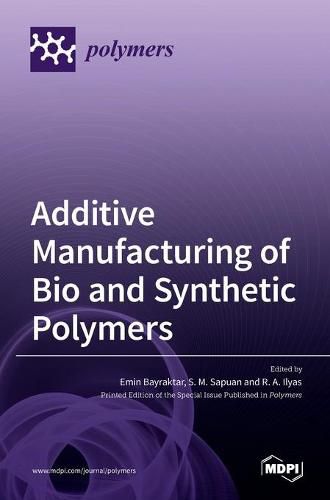Readings Newsletter
Become a Readings Member to make your shopping experience even easier.
Sign in or sign up for free!
You’re not far away from qualifying for FREE standard shipping within Australia
You’ve qualified for FREE standard shipping within Australia
The cart is loading…






This title is printed to order. This book may have been self-published. If so, we cannot guarantee the quality of the content. In the main most books will have gone through the editing process however some may not. We therefore suggest that you be aware of this before ordering this book. If in doubt check either the author or publisher’s details as we are unable to accept any returns unless they are faulty. Please contact us if you have any questions.
Additive manufacturing technology offers the ability to produce personalized products with lower development costs, shorter lead times, less energy consumed during manufacturing and less material waste. It can be used to manufacture complex parts and enables manufacturers to reduce their inventory, make products on-demand, create smaller and localized manufacturing environments, and even reduce supply chains. Additive manufacturing (AM), also known as fabricating three-dimensional (3D) and four-dimensional (4D) components, refers to processes that allow for the direct fabrication of physical products from computer-aided design (CAD) models through the repetitious deposition of material layers. Compared with traditional manufacturing processes, AM allows the production of customized parts from bio- and synthetic polymers without the need for molds or machining typical for conventional formative and subtractive fabrication.
In this Special Issue, we aimed to capture the cutting-edge state-of-the-art research pertaining to advancing the additive manufacturing of polymeric materials. The topic themes include advanced polymeric material development, processing parameter optimization, characterization techniques, structure-property relationships, process modelling, etc., specifically for AM.
$9.00 standard shipping within Australia
FREE standard shipping within Australia for orders over $100.00
Express & International shipping calculated at checkout
This title is printed to order. This book may have been self-published. If so, we cannot guarantee the quality of the content. In the main most books will have gone through the editing process however some may not. We therefore suggest that you be aware of this before ordering this book. If in doubt check either the author or publisher’s details as we are unable to accept any returns unless they are faulty. Please contact us if you have any questions.
Additive manufacturing technology offers the ability to produce personalized products with lower development costs, shorter lead times, less energy consumed during manufacturing and less material waste. It can be used to manufacture complex parts and enables manufacturers to reduce their inventory, make products on-demand, create smaller and localized manufacturing environments, and even reduce supply chains. Additive manufacturing (AM), also known as fabricating three-dimensional (3D) and four-dimensional (4D) components, refers to processes that allow for the direct fabrication of physical products from computer-aided design (CAD) models through the repetitious deposition of material layers. Compared with traditional manufacturing processes, AM allows the production of customized parts from bio- and synthetic polymers without the need for molds or machining typical for conventional formative and subtractive fabrication.
In this Special Issue, we aimed to capture the cutting-edge state-of-the-art research pertaining to advancing the additive manufacturing of polymeric materials. The topic themes include advanced polymeric material development, processing parameter optimization, characterization techniques, structure-property relationships, process modelling, etc., specifically for AM.